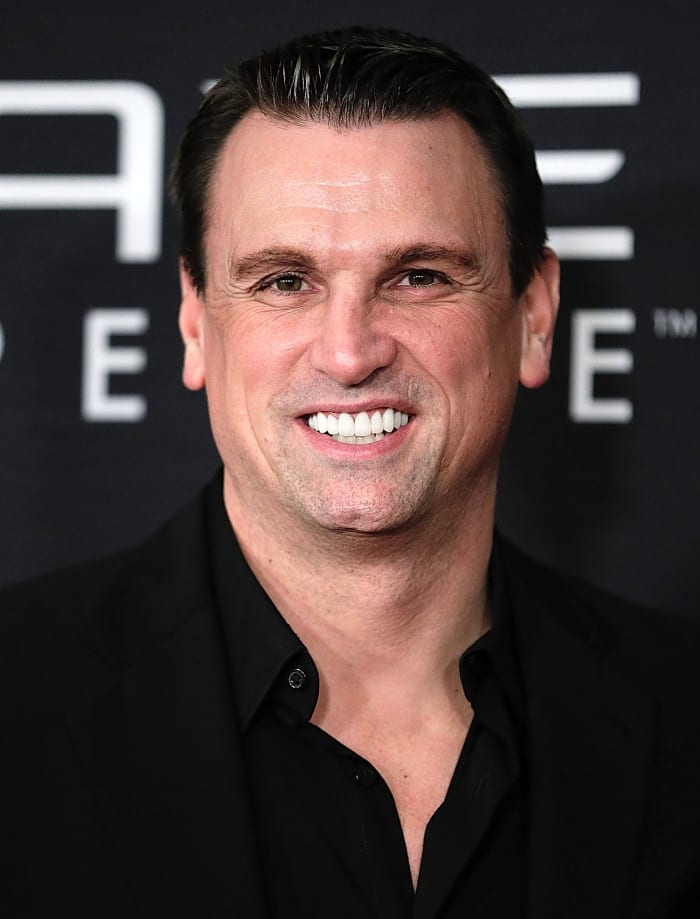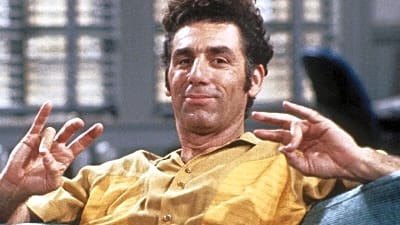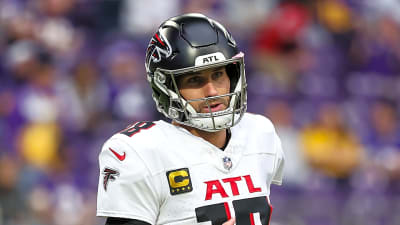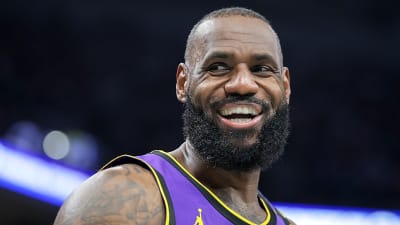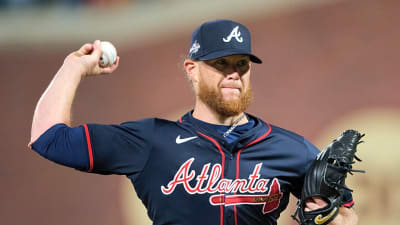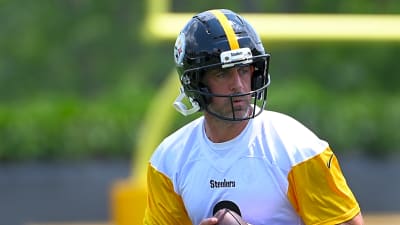Sports have been good for television. In fact, these days, watching sports live kind of drives the existence of traditional, linear television. Beyond that, sports have fueled many television shows, and even networks. The sports talking head has been around for decades now. This has been…a mixed bag. For every sensible, entertaining talking head there are three contrarians who just try and say the craziest thing possible to garner attention. Plus, some of them are just dumb. Many sports talking heads over the years have been either astute, or at least fun to watch, though. These are some of our favorites from over the years. Game announcers were not considered, because that is a different job. Neither were traditional “Sportscenter” anchors who weren’t really “talking heads” in the way we’re thinking.
Derek White/Getty Images
Look, is Barkley a “good” analyst? Does he seem like he pays attention? No, and no. However, in terms of entertaining people, Chuck is an icon. He’s a beloved cultural figure, the kind of guy who appears in all sorts of advertisements. The reason people were bummed about NBA on TNT ending was because it meant the end of Barkley, Ernie Johnson, and Kenny Smith on the network together.
Mitchell Leff/Getty Images
These days, Collinsworth is an analyst during NBC’s NFL games, but sometimes he is a talking head, and it’s what he was primarily in the past. Back in 2006, Collinsworth was in the studio for NBC and hosting Inside the NFL on HBO. He also worked on FOX talking football back in the day. Collinsworth is an astute observer of football, bringing intelligence while being entertaining.
Al Messerschmidt/Getty Images
The “talking head” show in sports can be credited to/blamed on “Pardon the Interruption.” It is the progenitor of all these programs where people argue about what’s going on in the world of sports. Kornheiser was the crotchety one, the old man yelling at the clouds. It was entertaining, Andy Rooney for the sports net. Now, he didn’t have the best takes on sports, but he wasn’t as anti-intellectual as his counterpart Michael Wilbon.
Jason Koerner/Getty Images
Le Batard often popped up on “PTI” back in the day, but he wasn’t cut from the same cloth as Kornheiser or Wilbon. One, he was more willing to accept evolution in sports, and sports analysis. Two, he was snarkier and less prone to pointless hot takes. Le Batard then went on and created his own sports media empire. He positions himself as the antidote to the people on ESPN yelling nonsense at one another, and he’s not wrong about that.
Erika Goldring/Getty Images
Like Le Batard, Jones left/escaped ESPN. He’s one of those you can now find doing his own podcast, which is of course also its own YouTube show. While he’s a good conversationalist, Jones also has an impressive skill to pontificate extemporaneously by himself. Though thoughtful, Jones is by no means dry. He can be acerbic, even raunchy, in a way he couldn’t on ESPN.
Abbie Parr/Getty Images
More than ESPN’s foremost fan of Pavement and “The Simpsons,” Kimes is often a voice of reason. She made the move from writer to “Around the Horn” type, which is not abnormal. However, she proved so capable of being engaging and compelling without resorting to contrarian nonsense that she has become a full-on analyst, a role that used to be normally left to former players and coaches. We’ll even overlook the fact she’s one of those people too into their dog.
Rebecca Taylor/NHLI via Getty Images
For many, Barry Melrose is the one true face of NHL talking heads. For years, mostly during the time when ESPN didn’t have NHL hockey, he’d be the only person on the network talking hockey. With his slicked-back quasi-mullet, goatee, and Canadian-ness, he cut the figure of a hockey personality. He was a Good Canadian Boy without being a Don Cherry-esque xenophobe and was entertaining even when his opinions were outdated. Sadly, in 2023, Melrose had to step away from his career after being diagnosed with Parkinson’s.
Jonathan Kozub/NHLI via Getty Images
Maybe you have to watch hockey emanating from Canada to catch Hrudey, but he has been one of the best hockey talking heads in the Great White North. The former goalie has spent many years on Hockey Night in Canada, the country’s foremost sporting broadcast. During the era of Cherry (sure, Cherry is getting another potshot, but he deserves it) he was more reasonable, and frankly more entertaining.
Rich Pilling/MLB via Getty Images
The heyday of “Baseball Tonight” always felt a bit more laid back than other ESPN shows. Gammons played a role in that. A Hall of Fame sportswriter (literally, he received the Spink Award from the BBWAA), Gammons joined ESPN in 1988 and was on “Baseball Tonight” until 2009. He became a professional sportswriter in 1969, but all those years later, he was still succeeding in a different medium.
Ben Gabbe/Getty Images for the 2014 Tribeca Film Festival
His name may be generic, but Smith is no generic personality. When ESPN started turning to “insiders,” he was such a correspondent for the NFL. An entertaining voice related to that sport, he was good enough at that to branch out to stuff like “Around the Horn” and his own show “Numbers Never Lie.” They also tried giving him and Jemele Hill the 6 p.m. “Sportscenter” when that was still a thing, though that was a mixed bag.
Daniel Shirey/MLB Photos via Getty Images
Like Barkley, Pedro was an entertaining presence as a player. Also, a great player. He was good for a sound bite or five, in part because he didn’t govern his words like many athletes. Also like Barkley, Martinez brings that unfiltered style to television. He hasn’t spent as much time on TV as Barkley, though may spend more time watching the sport he used to play, but Pedro has remained Pedro whenever he’s been on TV.
John Lamparski/WireImage
Legler is one of those guys more famous for his post-playing career work as a talking head than as a player. He played in 310 games in a decade of NBA play, and may have been a bit before his time. Legler won a three-point contest and made 43.1-percent of his career threes. In the modern NBA he’d be, who, Grayson Allen without the annoying personality? Speaking of not having an annoying personality, that is what has helped Legler be one of the regular voices discussing the NBA on ESPN for years. He carved out a career for himself without being able to rely on being a big name.
Roy Rochlin/Getty Images for Fanatics
Remember when Jalen Rose used to record his podcast with a bat slung over his shoulder? Going back to his days with the Fab Five, and as a pretty-good NBA player, Rose has always been a compelling personality. He seemed like one of those guys who, if he wanted to spend his time as a talking head, could. Indeed, Rose has now been doing that for years, arguably finding as much success discussing the NBA as he did playing in the NBA. And, again, he was pretty good!
Christian Petersen/Getty Images
Schlereth made two Pro Bowls and was a three-time Super Bowl champion even though during his NFL career he had, get this, 20 surgeries on his knees. No wonder every offensive lineman wears bulky knee guards these days. Schlereth, naturally, started by talking about the NFL, but was good enough at radio and TV he started to get chances in more general formatting. He’s one of those guys that is able to present as unfiltered and rough around the edges while actually being a seasoned, polished professional. That’s a tricky needle to thread.
Justin Casterline/Getty Images
An era has ended. For decades, Lee Corso was the face of college football on ESPN. When “College Gameday” debuted in 1987, Corso was there on the panel. He became something of the network’s mascot for college football coverage. That’s fitting, given that Corso’s most-beloved gimmick on the show was making picks using mascot heads. Congrats on the run, Lee.
Mitchell Layton/Getty Images
Not everybody from Duke is unlikeable. Bilas has used his knowledge of basketball and oratory skills developed from practicing law to become a smart, astute basketball observer. He’s focused on college basketball, where he has served as a nice comparison point to Dick Vitale. Vitale is all enthusiasm and nonsense. Half of what he says doesn’t make sense. Bilas doesn’t have the same energy, but he can provide as much insight as Dickie V in one-third the words.
Cindy Ord/Getty Images for SiriusXM
Former NFL quarterback Jaworski joined ESPN in 1990. He made “NFL Matchup” his playground, gaining acclaim for his ability to break down matchups. Before X’s and O’s were discussed much on TV, “Jaws” was doing it. He then got a chance to be an analyst on “Monday Night Football” next to Tony Kornheiser. Alas, after a few seasons ESPN made the mistake of replacing Jaworski with Jon Gruden. Gruden was a bigger name, but he was a bad analyst. Fortunately, “Jaws” got to stick around as an in-studio analyst for a few years.
Cindy Ord/Getty Images for SiriusXM
When it comes to the NFL Draft, Mel Kiper Jr. is the most-famous name. He’s also an idiot, which has become clear as more and more people who aren’t so dumb have started doing draft work. Over at the NFL Network, a network literally dedicated to the NFL, Jeremiah has been a good analyst. He writes, but he also does television, especially during the NFL Draft.
Slaven Vlasic/Getty Images for The Cantor Fitzgerald Relief Fund
When it comes to breaking news, nobody has ever done it better than Schefter. That is especially true in terms of being compelling when doing it. With all due respect to Adrian Wojnarowski and Shams Charania, they are better journalists than they are TV personalities. Schefter can do both. Even if he was just an analyst and a talking head, and not a news breaker, he’d be a worthy member of the sports media.
Evan Agostini/Getty Images
A lot of the “Around the Horn” regulars over the years have been among the worst TV talking heads. A Jay Mariotti or a Bill Plaschke, for example. Adande was an excellent “Around the Horn” panelist, and also a good NBA analyst on “Sportscenter.” Over the years, when not writing or appearing on TV, Adande has been a journalism professor across the country. That doesn’t surprise us.
Lachlan Cunningham/Getty Images
One of the most-popular basketball analysts working today is Burke. She’s largely working doing analysis on ESPN’s top NBA announce team. However, if you’ve ever seen her do a TV spot, or especially appear on a podcast, she’s excellent at talking about basketball in general.
22 of 22
Stephen A. Smith
Aaron M. Sprecher/Getty Image
Again, whether or not we like his work per se, one has to acknowledge Stephen A. Smith. He is the quintessential TV talking head of the modern era. The guy has defined the era of the debate show. Smith can be obnoxious. He’s so obviously contrarian that sometimes it makes you roll your eyes. The whole hating the Cowboys thing is both dated and sweaty. And yet, you cannot deny the impact Smith has had on sports media and the popularity he has generated. The hustle must be respected. When you consider the proverbial Mount Rushmore of sports media in the new millennium, Smith has to be a lock to make the cut.
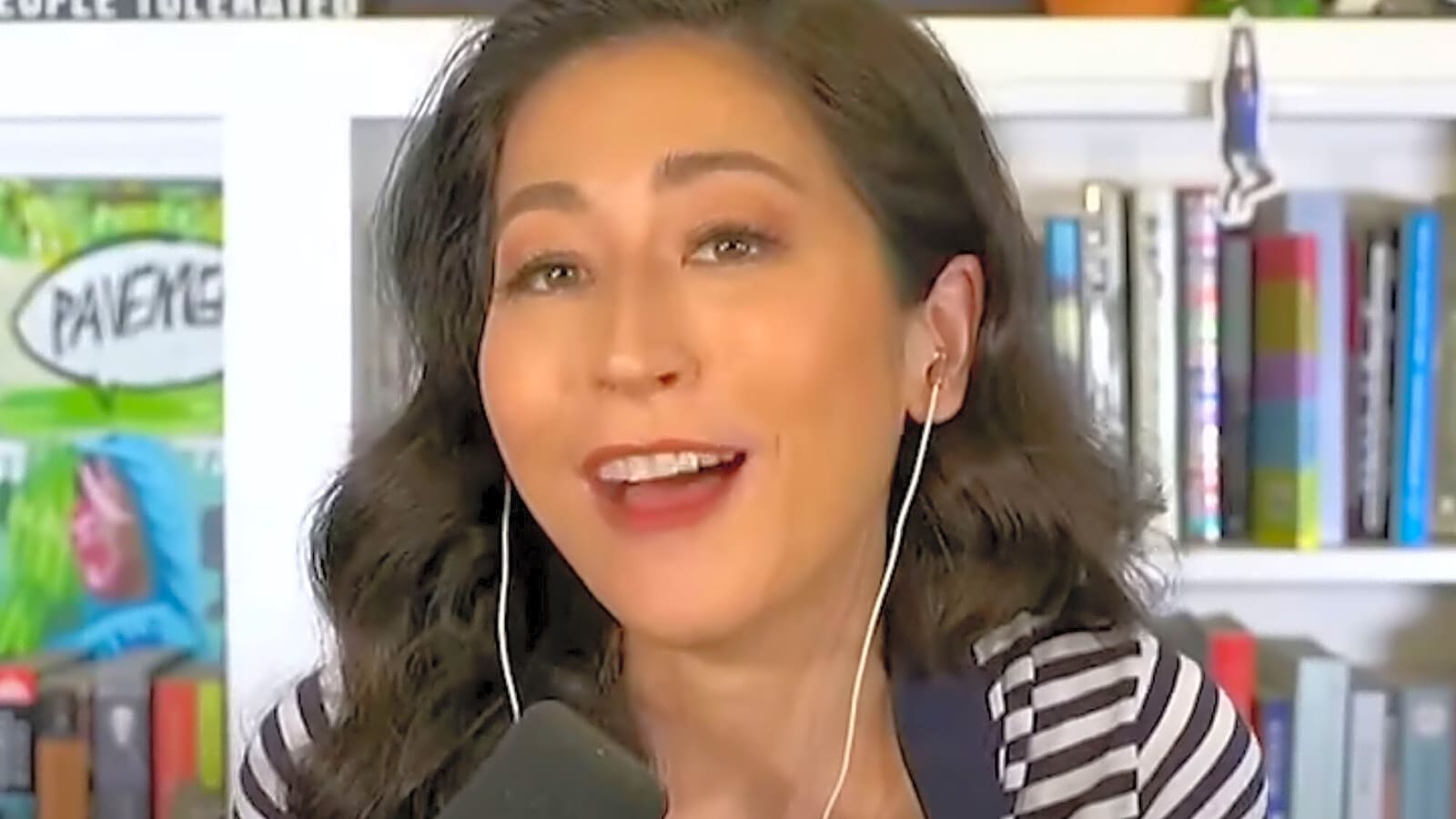
 +
+











